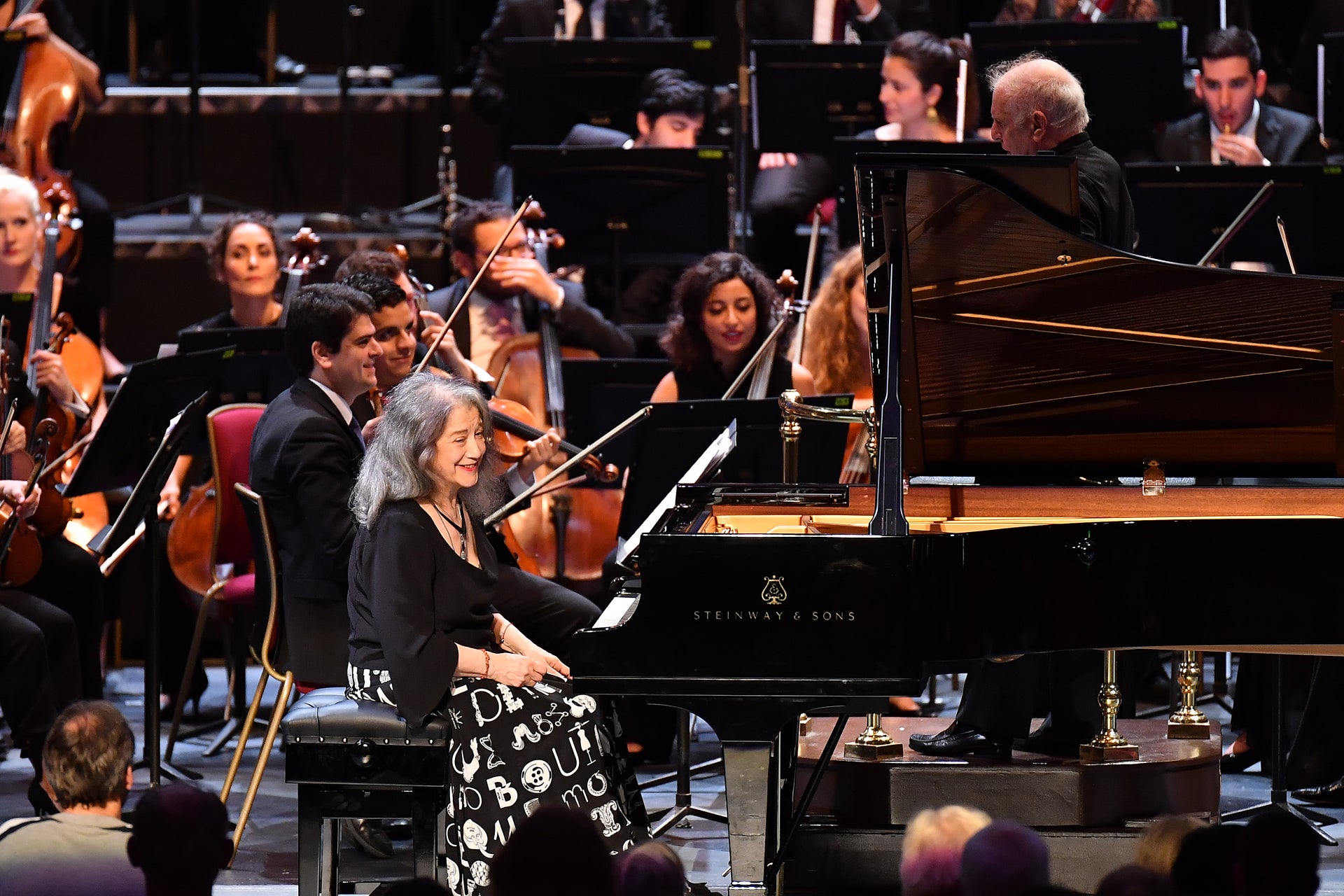Classical music is keeping a surprising number of people sane during lockdown – including me
A Mozart symphony or a Sibelius tone poem can have a calming effect, writes Andy Martin


Even if Covid-19 can induce anosmia, crippling our sense of taste and smell, it has no detrimental effect on hearing. Lockdown has, if anything, sharpened our auditory senses and we are increasingly seeking consolation in music. We were forced to drop out, so we tuned in and turned on.
But what kind of music strikes the right note? A new survey from the Royal Philharmonic Orchestra shows that, even if we are not going to concerts, we are listening to more orchestral music in isolation than in the same period last year (51 per cent in 2020, a mere 22 per cent in spring 2019; and more young people than old; and more in London than the South West). Before you say that these are obvious results from such research, I should add that the research was carried out by respectable market researchers using a sample of over 2,000 people.
To state an interest: I’ve got a couple of ancient vinyl recordings done by the RPO (English orchestral works, Thomas Beecham conducting). And I once heard them playing all the Beethoven symphonies at the Royal Albert Hall, although not on the same night. Now they normally play at Cadogan Hall, as well as recording film soundtracks and trying to increase access and performing in homeless shelters.
According to the survey, people say that orchestral music has stopped them going completely loopy in lockdown. A Mozart symphony or a Sibelius tone poem can have a calming effect. Probably more so than Metallica or Motorhead, I would guess. Are we therefore going more “classical” in isolation? Other classics I have been listening to – notably on the daily manic bike ride that is a substitute for the gym – include King Crimson, Led Zeppelin and Dido. But as the RPO suggests, I probably have been listening to more “orchestral” music than before. Elisabeth Schwarzkopf singing Mahler’s Four Last Songs was a standout. Pure ataraxia.
On the other hand, I’ve increasingly adopted an anything-goes attitude under lockdown. A good friend, who is a country music fan, got me to listen to “If I Die Young” by The Band Perry. I was taken with it and not only because of the cheerfully doom-laden lyrics to do with being buried in satin or floating away down the river, not to mention the laugh-out-loud line, “after I’m a goner” (to rhyme with “dollar”). Guitarists in Stetsons are no more ridiculous than bassoonists in black tie and tails.
I am probably not going to listen to Abba more than I normally would, but even I admit to a slight pang at the absence of the Eurovision Song Contest (even if that is 90 per cent roller-skating and dancing and generally mucking about).
David Byrne (formerly of Talking Heads) in his How Music Works argues that it is the space in which music is played, be it mediaeval monastery or New Orleans bar, that determines the kind of music that is being composed. But I think you could equally argue that the context in which it is heard also makes a difference to what we listen to.
Lockdown may have us reaching for particular sounds, music that is capable of immunising us against all the worries of the world. The sound of lockdown, for me at any rate, has been more polyphonic than orchestral, with sublime choirs singing Thomas Tallis or Palestrina, or “Night Tracks” with Sara Mohr-Pietsch on Radio 3. Perhaps a good Requiem, by Fauré or Duruflé, is akin to “If I Die Young”. All music effortlessly transports us beyond a particular time and space, takes us to other times and other places. It’s also good, as another friend said, for drowning out ambulance sirens and noisy neighbours.
But lockdown will surely go down in history as the time when we could not go to live gigs, whether to the Royal Philharmonic or Stormzy, and were forced to remember our favourite ones. What is happening, for example, to the Roundhouse in Chalk Farm? I was there not long ago for a performance by my sons’ band, Lunch Money Life. I used to be their roadie until they gave me the sack for running out of petrol, and I can’t even see them these days, except online, but at least I have been able to listen to their “Superego” or “God Complex”. A Spanish radio station said they were “imposible de categorizar”.
They sometimes talk, appropriately enough, of making “apocalyptic” music. But as one of them said recently in an interview, “It sounds fine when you talk about the apocalypse on the record sleeve, but it’s effing inconvenient when it slaps you in the face.”
Join our commenting forum
Join thought-provoking conversations, follow other Independent readers and see their replies
Comments